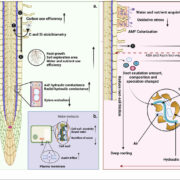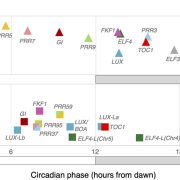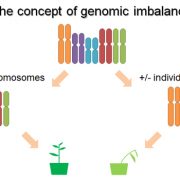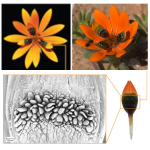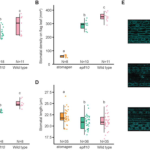Hydraulic trade-offs underlie enhanced performance of polyploid trees under soil water deficit
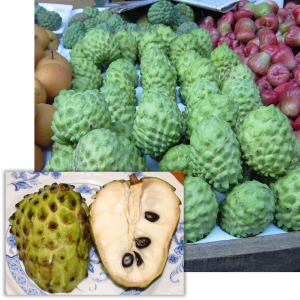 The (apparently delicious) fruit called atemoya is produced from a hybrid of Annona squamosa (sugar apple) × Annona cherimola (cherimoya), native to the American tropics but now grown widely. The hybridization event led to plants with several ploidies; diploid, triploid and tetraploid, which serve as the experimental material for a study by Losada et al. exploring the effect of ploidy on responses to water deficit in woody trees. Previous studies in herbaceous plants have shown that polyploids often show enhanced performance under stress, but few studies have been carried out in woody species. The authors studied seedlings and grafted scions of trees with the three types of ploidy under three irrigation regimes, examining functional anatomy and physiological parameters. They observed several differences between diploid, triploid, and tetraploid trees, but the key finding is that diploid trees are more efficient in conditions of water abundance, but more sensitive to water limitation, whereas polyploid trees showed a moderately more robust performance under drought. (Summary by Mary Williams @PlantTeaching) Plant Physiol. 10.1093/plphys/kiad204
The (apparently delicious) fruit called atemoya is produced from a hybrid of Annona squamosa (sugar apple) × Annona cherimola (cherimoya), native to the American tropics but now grown widely. The hybridization event led to plants with several ploidies; diploid, triploid and tetraploid, which serve as the experimental material for a study by Losada et al. exploring the effect of ploidy on responses to water deficit in woody trees. Previous studies in herbaceous plants have shown that polyploids often show enhanced performance under stress, but few studies have been carried out in woody species. The authors studied seedlings and grafted scions of trees with the three types of ploidy under three irrigation regimes, examining functional anatomy and physiological parameters. They observed several differences between diploid, triploid, and tetraploid trees, but the key finding is that diploid trees are more efficient in conditions of water abundance, but more sensitive to water limitation, whereas polyploid trees showed a moderately more robust performance under drought. (Summary by Mary Williams @PlantTeaching) Plant Physiol. 10.1093/plphys/kiad204


